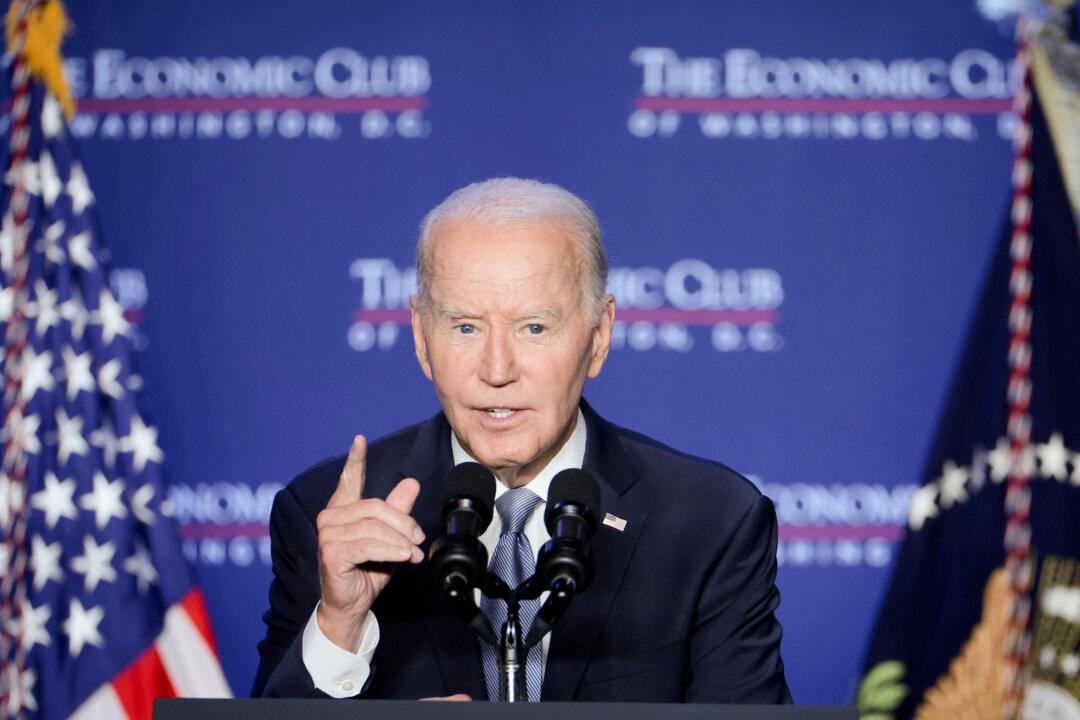WASHINGTON—President Joe Biden on Sept. 19 praised the Federal Reserve’s move to sharply lower interest rates, saying that the U.S. economy has entered “a new phase.”
Speaking at a lunch event hosted by the Economic Club of Washington, D.C., Biden said that the Fed’s “lowering interest rates isn’t a declaration of victory; it’s a declaration of progress.”






